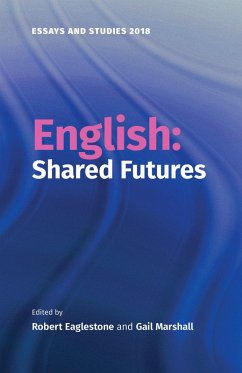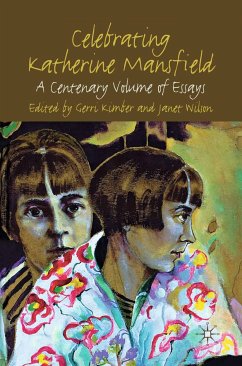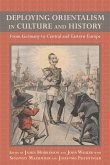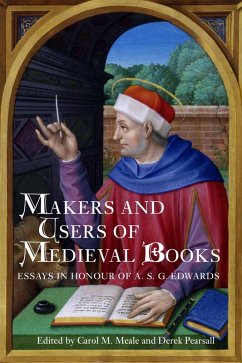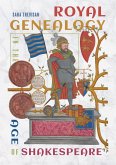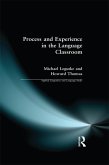Essays exploring the opportunities for and challenges to the discipline of English language and literature in education.
The study of English literature, language, culture and creative writing is an important and dynamic enterprise. English: Shared Futures celebrates the discipline's intellectual strength, diversity and creativity, explores its futures in the nations of the UK and across the world, and brings together the huge scholarly, cultural and social energy of the biggest subject in the Arts and Humanities in Higher and in Secondary education: the most staff, the most students. It represents the synergies produced when practitioners and students from across the discipline come together, and aims to enable new understanding of the challenges that the discipline faces within schools and universities, the vital cultural and political role that English plays, and a renewed appreciation of the intellectual vitality and commitment of its scholars and students. Overall, it demonstrates the rich ecosystem of a subject crucial to social, cultural, and economic well-being, and offers ways in which its vitality can be ensured in the face of new challenges within and beyond the academy.
ROBERT EAGLESTONE is Professor of Contemporary Literature and Thought, Royal Holloway, University of London; GAIL MARSHALL is Head of the School of Literature and Languages at the University of Reading.
Contributors: James Annesley, Katherine Baxter, Barbara Bleiman, Elleke Boehmer, Kirsti Bohata, Benjamin A. Brabon, Linda Bree, Susan Bruce, Billy Clark, Stefan Collini, Jane Davis, Sarah Dillon, Clare Egan, Elizabeth English, Emily Ennis, Martin Paul Eve, Corinne Fowler, Bárbara Gallego Larrarte, Marcello Giovanelli, Diya Gupta, Rob Hawkes, Ann Hewings, Keith Jarrett, Clara Jones, Seraphima Kennedy, Ben Knights, Simon Kövesi, Clare A. Lees, Alison Lumsden, Andrea Macrae, Lewi Mondal, Paul Munden, Daniel O'Gorman, Lynda Prescott, Ilse A. Ras, Catherine Redford, Rick Rylance, Helen Saunders, Jenny Stevens, Marion Thain, Stephen Watkins, Harry Whitehead
The study of English literature, language, culture and creative writing is an important and dynamic enterprise. English: Shared Futures celebrates the discipline's intellectual strength, diversity and creativity, explores its futures in the nations of the UK and across the world, and brings together the huge scholarly, cultural and social energy of the biggest subject in the Arts and Humanities in Higher and in Secondary education: the most staff, the most students. It represents the synergies produced when practitioners and students from across the discipline come together, and aims to enable new understanding of the challenges that the discipline faces within schools and universities, the vital cultural and political role that English plays, and a renewed appreciation of the intellectual vitality and commitment of its scholars and students. Overall, it demonstrates the rich ecosystem of a subject crucial to social, cultural, and economic well-being, and offers ways in which its vitality can be ensured in the face of new challenges within and beyond the academy.
ROBERT EAGLESTONE is Professor of Contemporary Literature and Thought, Royal Holloway, University of London; GAIL MARSHALL is Head of the School of Literature and Languages at the University of Reading.
Contributors: James Annesley, Katherine Baxter, Barbara Bleiman, Elleke Boehmer, Kirsti Bohata, Benjamin A. Brabon, Linda Bree, Susan Bruce, Billy Clark, Stefan Collini, Jane Davis, Sarah Dillon, Clare Egan, Elizabeth English, Emily Ennis, Martin Paul Eve, Corinne Fowler, Bárbara Gallego Larrarte, Marcello Giovanelli, Diya Gupta, Rob Hawkes, Ann Hewings, Keith Jarrett, Clara Jones, Seraphima Kennedy, Ben Knights, Simon Kövesi, Clare A. Lees, Alison Lumsden, Andrea Macrae, Lewi Mondal, Paul Munden, Daniel O'Gorman, Lynda Prescott, Ilse A. Ras, Catherine Redford, Rick Rylance, Helen Saunders, Jenny Stevens, Marion Thain, Stephen Watkins, Harry Whitehead
Dieser Download kann aus rechtlichen Gründen nur mit Rechnungsadresse in A, D ausgeliefert werden.

